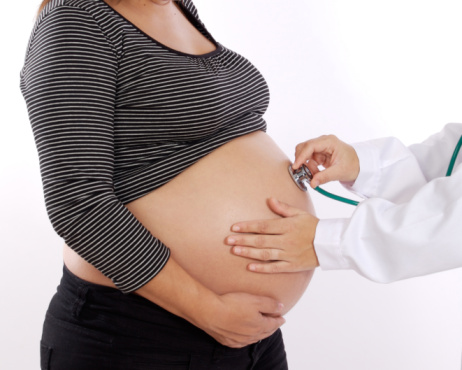 I feel lucky to work in a city with such an active and informed Department of Health. It’s been a little overwhelming to have the Zika virus get so much press, so we’re grateful to have the guidance. This is especially true since we expect to be approached by patients (and doctors from other clinics) who are worried about the disease.
I feel lucky to work in a city with such an active and informed Department of Health. It’s been a little overwhelming to have the Zika virus get so much press, so we’re grateful to have the guidance. This is especially true since we expect to be approached by patients (and doctors from other clinics) who are worried about the disease.
Four weeks ago, the NYDOH had recommended testing women who reported symptoms after visiting Zika-affected countries during their pregnancies; a short time later, the recommendation was changed to: offer exams to all women who had been to one of these countries during their pregnancies.
Every morning session in our clinic at Montefiore Medical Center, we start with a staff “huddle,” a quick meeting where we can bring up the issues of the day. Today, I review our new workflow for our staff; we’ll be screening all of our patients for exposure to Zika, starting at the front desk, so that we can offer those patients counseling, testing and possible follow-up to assess for any effects the microorganism might have on their fetuses.
Learning about and assessing Zika risk
I run my eyes down the list of the regions and countries affected by Zika mentioned on the CDC website—Puerto Rico, Dominican Republic, Haiti—and think “Oh, that’s going to feel like almost everybody we take care of.” We review quickly the recommendations about travel, about ways to protect against mosquito-borne diseases and about the very rare possibility of Zika as a sexually transmitted infection, and how that might change how we counsel our patients.
My first patient of the day had not left the Bronx since her pregnancy started. “Are you kidding?” she says. “I barely make it to the grocery store after work, I’m so tired.” We manage the rest of her visit―she has diabetes during this pregnancy, so those grocery store trips are important in helping her eat right and keep her sugar values where they need to be. I give her some more iron supplementation; that might help with her fatigue, though she tells me she thinks it’s probably her two young children who are the biggest contributors to her exhaustion, and I agree.
Talking to at-risk patients
My next patient is in with our social worker, so I look at her chart. Our questionnaire is in her chart, and she’s circled “Yes,” she has recently traveled to Jamaica. She’s 28 weeks pregnant, and comes to the high-risk OB clinic for some issues with her lupus, which overall has been quiescent this pregnancy. I walk into Room 7 to see her; I say “Hi” and ask how she’s feeling. Then I show her the paper where she circled “Yes,” and ask, “Do you know why we asked this?” “Sort of,” she says. “I heard something in the news.”
I spend the next 20 minutes working with her on the Zika virus question―she’s had no symptoms, but we still think the testing and possible ultrasound follow-up may be helpful. My counseling is cautious: I don’t want her to worry too much―we know so little about this virus. I do worry that our screening protocols will cause anxiety, and ultimately more harm than good. Luckily enough, this patient had an obstetric ultrasound last week, and the fetal head measurements were completely normal. She feels pretty confident that she wasn’t exposed―she spent most of the time at her mom’s house, indoors, with the windows closed and the air conditioner on. We finish our visit quickly―she’s late, and I’m even later for the next patient. She turns to go to the next-door office to work with our designated Zika counselor to get the testing done. I let her go, and then run down the hallway to remind her to stop at our nursing station because she needs a shot. That reminds her to tell me that she needs more refills for her prenatal vitamin. “Oh,” she says, “and weren’t we going to talk about birth control today, for after the baby comes?” “We were,” I say, adding “we will―next visit, absolutely.” We had spent most of this visit on Zika, and that meant we pushed some of the usual prenatal care to her next visit.
I grab the chart of the next patient, who, according to the file in my hand, moved here from Dominica four months ago, is 17 years old, is pregnant with twins and had no prior prenatal care. We’re going to have a lot to talk about; somehow, we’ll get the Zika virus part done as well.

